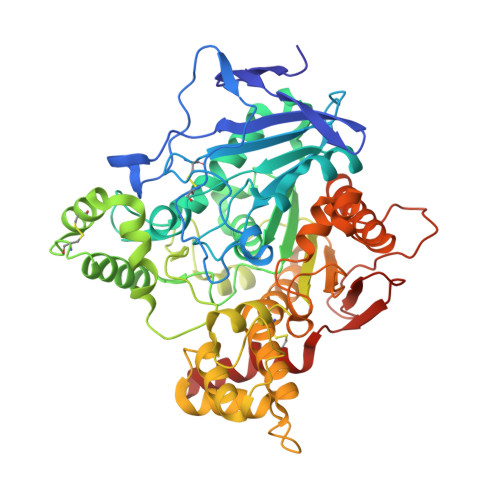Structure-Based Optimization of Nonquaternary Reactivators of Acetylcholinesterase Inhibited by Organophosphorus Nerve Agents.
Santoni, G., de Sousa, J., de la Mora, E., Dias, J., Jean, L., Sussman, J.L., Silman, I., Renard, P.Y., Brown, R.C.D., Weik, M., Baati, R., Nachon, F.(2018) J Med Chem 61: 7630-7639
- PubMed: 30125110
- DOI: https://doi.org/10.1021/acs.jmedchem.8b00592
- Primary Citation of Related Structures:
6FLD, 6FQN, 6G17, 6G4M, 6G4N, 6G4O, 6G4P - PubMed Abstract:
Acetylcholinesterase (AChE), a key enzyme in the central and peripheral nervous systems, is the principal target of organophosphorus nerve agents. Quaternary oximes can regenerate AChE activity by displacing the phosphyl group of the nerve agent from the active site, but they are poorly distributed in the central nervous system. A promising reactivator based on tetrahydroacridine linked to a nonquaternary oxime is also an undesired submicromolar reversible inhibitor of AChE. X-ray structures and molecular docking indicate that structural modification of the tetrahydroacridine might decrease inhibition without affecting reactivation. The chlorinated derivative was synthesized and, in line with the prediction, displayed a 10-fold decrease in inhibition but no significant decrease in reactivation efficiency. X-ray structures with the derivative rationalize this outcome. We thus show that rational design based on structural studies permits the refinement of new-generation pyridine aldoxime reactivators that may be more effective in the treatment of nerve agent intoxication.
- Université Grenoble Alpes, CEA, CNRS, IBS , F-38000 Grenoble , France.
Organizational Affiliation:



















